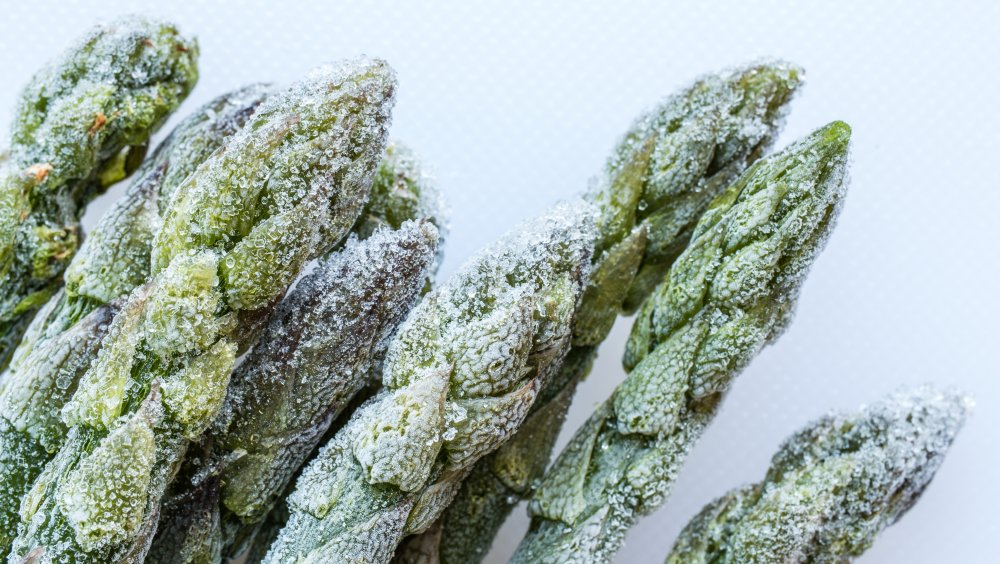This Is The Secret To Freezing Asparagus
At your local farmers market (or at your favorite Trader Joe's?) you pick out a bundle, of fragrant, fresh green asparagus. You're going to use it on your grilled pizza, or perhaps you're planning on a chicken stir fry with asparagus and cashews?
Things go well until the morning after. Then, stumbling into your kitchen, you open your refrigerator to take out your cream for your coffee, and notice an obnoxious amount of asparagus sitting and waiting to be eaten, but you're all asparagus-ed out. Everybody knows the story by heart. Nobody talks about it. Before reading this post, did you throw it away, or, best case scenario, maybe you composted it?
Resist the temptation, if nothing more than for the fact that the asparagus you just bought took an astonishing three years to get from seed form to the stalks ready to be chopped into soups or oven-roasted to perfection and drizzled with lemon (via Modern Farmer). Do yourself a favor, and preserve your leftover asparagus for your next date night — freeze it.
How to freeze asparagus to maintain its flavor and texture
It's not that complicated. Have you cleaned your asparagus already? If you haven't, go ahead and do so, then trim off the ends of the vegetable (via Food 52). The Spruce Eats recommends that you cut your asparagus into one to two-inch pieces, but if you leave them long, we're not going to judge. Now, prepare a bowl of ice water. It's blanching time! Salt a pot of water and boil it. Food 52 recommends you drop your asparagus in the boiling water for 30 to 60 seconds. If you're cooking you asparagus in 1-pound batches, you might need longer (The Spruce Eats says two to five minutes depending on how thick your stalks are).
You'll know your asparagus is done when its somewhere between "raw-tasting" and "flabby." Remove it from the stove, and shock it in your pre-prepared ice-water. Per The Spruce Eats, you should leave the asparagus, submerged, in your ice water for as long as you cooked it. Then, dry your asparagus with towels (paper or otherwise).
There are two ways to freeze it. You can choose to simply pack your asparagus stalks in a freezer-safe container and freeze them directly. Alternatively (if it's important to you that your frozen stalks don't stick together) flash-freeze them first by placing the stalks on a baking sheet, single layer, and freezing them for an hour or two, before packing and freezing as normal.

